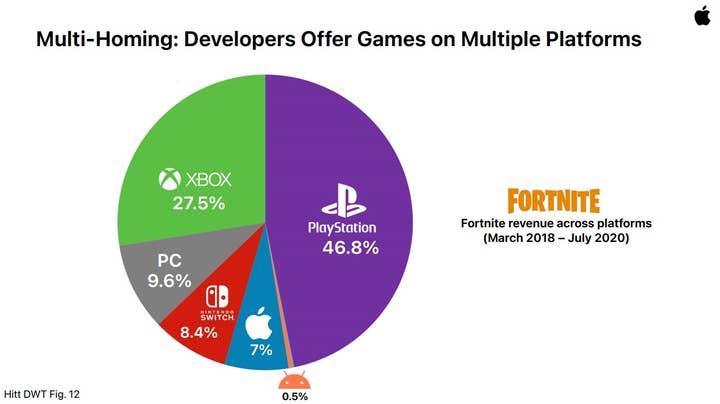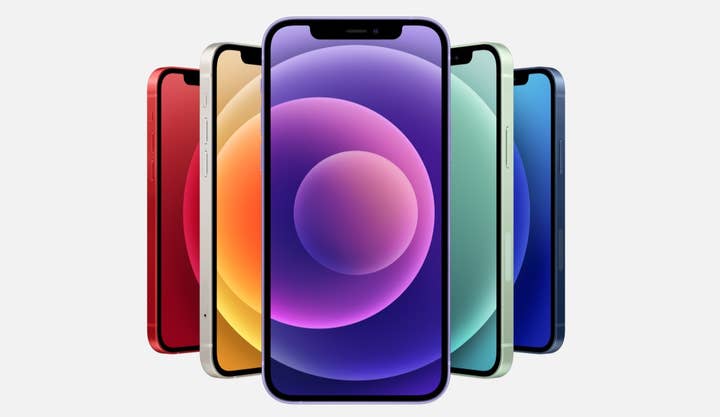Epic, Apple trade shots in opening statements
Fortnite maker questions motivations behind App Store policies while iPhone maker says Epic victory would hurt consumers
The Epic Games v. Apple trial is underway, with both parties making their opening statements in the US District Court case today.
Epic counsel devoted the early part of its statement to characterizing Apple's strategy in building the iOS ecosystem as anti-competitive, relying on email conversations from various Apple executives indicating a desire to set policies around the Apple App Store to head off competition and undermine consumer choice.
In one 2010 email, Apple CEO Steve Jobs discussed a desire to "lock customers into our ecosystem," while another Apple employee in 2016 talked about the difficulty people had transitioning to Android and leaving behind the iMessage app, saying it "amounts to serious lock-in."
Epic also said Apple's handling of the App Store was often arbitrary or inconsistent, picking and choosing which types of purchases it will demand a cut on (digital goods but not physical goods, subscriptions but only starting in 2011), and how much the cut should be. Epic counsel cited testimony from a number of Apple employees who said Steve Jobs had set the 30% rate, but didn't recall any discussion about why.
"Once Apple began to require the implementation of IAP in 2009, it needed to decide how much to charge," Epic's counsel stated. "Its choice of 30% was unattached to the cost of the tools, services, and support it gives developers... There's a name for businesses that set prices without regard to costs: Monopoly."

An Epic expert testified that that Apple's operating margin on the App Store was 77.8% in 2019 and 74.9% in 2018, although in its own opening statement, Apple said those numbers weren't taking into account the cost of the software teams working on SDKs and APIs that should be associated with the App Store.
Epic also attacked Apple's various defenses in its opening statement. While Apple has cited security issues as one of its motivations for its policies, Epic questioned why the Mac allows for a relatively greater amount of freedom than iOS, and noted the company's repeated insistence that the Mac is itself a secure and "worry-free" platform for apps.
"Take away the security particular to the iPhone, and the bad actors are going to have a field day, which is why Android security statistics are so much worse"
Apple counsel
Apple's counsel explained the company's reason for the discrepancy in platform security in its opening statement, saying, "There are over 1 billion portable iOS devices, with 1.8 million apps for download. Each device has a camera, and a microphone, and a GPS which are always present. This threat model is what makes iOS different from MacOS.
"The iPhone is not a Mac. It is a rare moment when somebody leaves a Mac on a bus, or in a movie theater. Your Mac doesn't always know where you are, or where your children are. More devices to attack, more opportunities to attack, more incentives to attack. Take away the security particular to the iPhone, and the bad actors are going to have a field day, which is why Android security statistics are so much worse."
Epic counsel argued that the App Store has such a lock on iOS customer's behavior after the initial purchase that it qualifies as a single-brand product market, adding it is "far more entrenched in every factual way that matters" than the Eastman Kodak company, which lost a 1992 Supreme Court decision over its refusal to sell service and maintenance parts to companies that bought its photocopiers second-hand.
"Your honor, Epic wants to reach customers lost inside Apple's walled garden," the company's counsel concluded. "In the absence of Apple's restrictions, Epic and all developers will not only be able to reach those customers directly, but Epic will be able to provide them with more innovation, lower prices, and better customer service. We submit that once the evidence is in, it will show unambiguously that Apple is a monopoly, has unlawfully campaigned as a monopoly, and that Epic has met its burden on all claims."
In its own opening statement, Apple focused on a few points repeatedly, arguing that the success of the App Store has actually improved consumer choice, noting it offers more than 1.8 million apps today, while developers made more than $3 billion collectively from those apps in the third quarter of 2019.
"Epic wants to reach customers lost inside Apple's walled garden"
Epic counsel
Epic itself has been the beneficiary of the App Store, Apple counsel argued, saying that the company's hit Fortnite has made more than $750 million on iOS alone.
It also stressed that it has never risen prices on developers, and has even lowered its revenue share on subscriptions (after the first year), videos, and small businesses. (Epic argued that the company's decision to start taking a share of subscriptions in the first place counted as a price hike.)
Another point of focus for Apple was on Epic's attempt to portray the App Store as a single-brand market.
"Every one of Epic's claims depends on its ability to define a relevant market, the universe of reasonable substitutes," Apple counsel said.
Apple's own expert economist, former director of the FTC's Bureau of Economics Francine LaFontaine, PhD, was quoted as saying the proposed single-brand aftermarket of all apps on the App Store was too broad to qualify in some ways, and too narrow in others.
LaFontaine's position is that Epic's definition is too broad to be a single market if consumers of one app are unlikely to substitute with each other -- the Fortnite app wasn't necessarily competing with the Starbucks app, for instance -- but too narrow if it excludes substitutions that are likely to happen.
To bolster the "too narrow" point, Apple counsel noted that four people on iPhone, Xbox, Switch, and PC could play the same game of Need for Speed against one another, but Epic's market definition would mean three of those people would not count as part of the relevant market.

Beyond that, Apple cited its own expert economist who determined that removing Fortnite from the App Store and Google Play caused the game to see new user accounts added on every other platform, suggesting the various platforms are competing with one another in the same market.
Apple's counsel also warned that an Epic victory would mean "other ecosystems would fall too," saying there would be nothing to distinguish the App Store from console manufacturers like Microsoft, Nintendo, and Sony, given they all charge the same cut and prohibit sideloading of programs or rival stores on their hardware.
"The most dangerous thing Epic is going to sell the court is the idea that consumers would be better off if Epic had its way," Apple's counsel concluded. "Nothing could be further from the truth. Epic speculates about a world where Apple is a different company. And it's asking this court to make a big bet that that world is a better world than the one we live in. It isn't.
"The result for consumers and developers will be less security, less privacy, less reliability, lower quality, and less choice. It will be the very thing that the antitrust laws seek to protect [against]."
You can follow our complete Epic vs Apple coverage here

